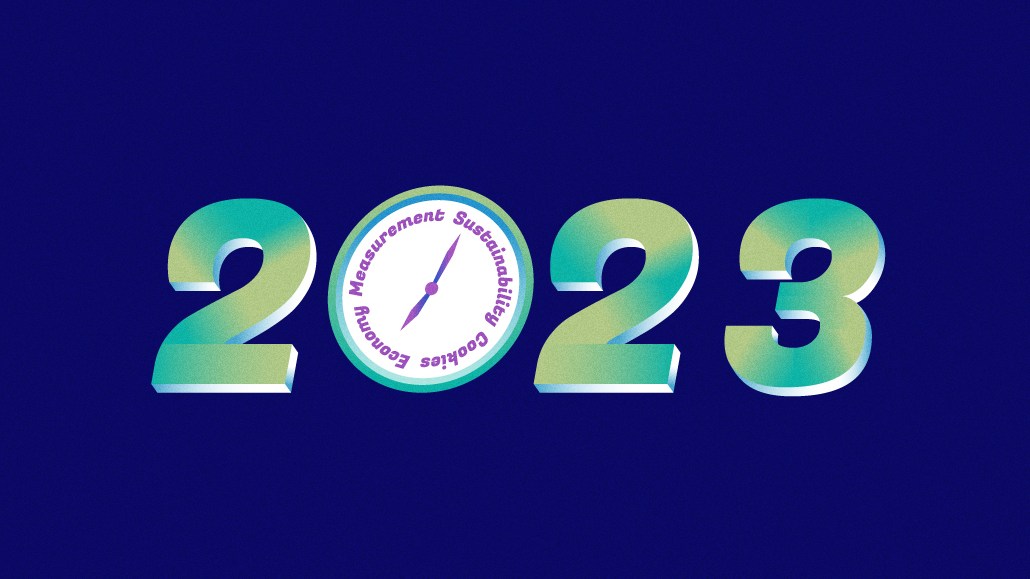Last chance to save on Digiday Publishing Summit passes is February 9

The digital advertising forecast for 2023 has a few givens but is largely packed with uncertainties due to industry-wide transformation.
Economic evaluations for the year ahead are putting pressure on budgets during a time when the digital advertising industry is navigating new regulations and technologies that affect its bottom lines. And, as always, trust is increasingly critical for ad tech to prove its value to both advertisers and publishers. As players in the space push for more innovation and transparency from vendors, consolidation is also impacting the sector.
In this new Q&A, Dr. Jochen Schlosser, Chief Technology Officer at Adform, spoke with the Custom in-house agency at Digiday Media about how ad tech will respond to questions around privacy, identity, sustainability and transparency in 2023.
How will the expected general economic downturn affect the sector? Is there an argument that ad tech will innovate out of the adversity?
Jochen Schlosser: With this economic crisis, we see budgets going down at the same time that inflation is rising. Advertisers are much more cost-conscious, and the focus is on ROI — tracking, measurement and actual proof of the impact of their investments. So the money that usually goes into innovation is less available now than in previous years. When economic forces shift back, we will see a massive push toward innovation again because the window for new identity solutions is getting shorter.
However, some companies, the highly profitable companies, have an opportunity to innovate and stay ahead of the curve right now with the aim to grow market share while others are slowing down.
How will sustainability affect innovation in ad tech?
Jochen Schlosser: In advertising, sustainability has been sneaking into the governance discussion for a few years already. There are some vital questions that CMOs need to answer. How can I control where I spend my money? How can I ensure that it goes toward a publisher that is considered “good” in terms of transparency, ethics and sustainability?
More companies are looking into sustainability and want to choose a vendor with a record of trust with sustainability or even offering opportunities to optimize spend toward sustainable publishers. Are they using green energy? How do they source their partners? Carbon neutrality and ethical standards of companies are becoming business-critical for brands.
Most ad tech companies that I speak with have sustainability policies in place already. As an industry, we connect billions of dollars of demand with trillions of opportunities to show ads on publisher properties. If either side starts to ask for more sustainable transactions, ad tech and programmatic is the way it happens. We will be innovating around products to trade using sustainability as a criterion, as advertisers will need simple solutions to activate and run sustainable ads.
Is the ‘death of the cookie’ still an issue, or are marketers finding alternative solutions?
Jochen Schlosser: Cookies will die — we know that for sure — but the timing is still a bit unclear. As long as people don’t have trust in this “end date,” it will continue to be the likely biggest annoyance in the industry.
It still doesn’t feel like the cookie will be gone within 24 months for some large publishers and advertisers. So many companies are moving slowly, but innovative companies are moving ahead of the curve. They will be in the best position and are already seeing traction with first-party data, building deeper partnerships based on the security and quality of first-party identifiers. This will be a game changer in the industry.
However, many are still searching for their solution. But there will not be one global solution; it won’t be one solution that fits all needs across all markets. The answers the industry lands on will be regional — perhaps it’s going to be 10 identity solutions that need to be leveraged in parallel by the large DSPs, and that can help, especially the mid- to long-tail publishers, to still run programmatic ads. Yes, the right solutions are starting to emerge, but we don’t see a single solution that covers the globe or even an entire country. I am sure there will be different solutions in each market that will provide value similar to or even better than third-party cookies, with strength around audience control, governance and privacy. I’m very optimistic about the overall future here.
What developments will we see in measurement and attribution?
Jochen Schlosser: Cookie deprecation is connected to measurement and attribution concerning areas of uniqueness, which are especially important for brand advertising. If you don’t know your unique user base, you don’t know your reach in your target audience or your incremental reach from channel A to channel B.
I think we’re in a good place with measurement and tracking in what I would call classic programmatic channels. We are in an exciting place when it comes to emerging channels like digital out-of-home and CTV.
We have seen a lot of definitions with the emerging channels now and will see a lot of implementations around brand measurements and needed controls. Things like viewability, fraud prevention and tracking will be standardized quite quickly. Downstream, the focus for everyone is on the highest level of standardization, accreditation and reduction of discrepancies around these new channels.
So, all in all another busy year ahead?
Jochen Schlosser: Yes, but everyone has to take care of the (r)evolution themselves. For all advertisers, agencies and publishers out there: Stop, don’t wait for the trend that will solve your problems. We all work in different ways — every company, every team, every business idea and every business direction is somewhat different. For each of us, different things are important and different things have priority. Business success is always an interplay of the status quo, the macroeconomic environment in which the company operates, and where the company wants to go next year and beyond. The noise around trends often obfuscates what is truly important in the specific company context.
Sponsored by: Adform
More from Digiday

Lego is building out an in-house programmatic team
The Danish advertiser is hiring for programmatic roles to flesh out paid digital unit. But it’s not the only brand deepening its in-house bench.

Here’s what else a $8M, 30-second Super Bowl budget can purchase in 2026
Digiday once again takes a look at what $8 million can afford a buyer elsewhere elsewhere in the media landscape.

ICE has become a national issue for Target
More groups and activists outside of Minnesota have also been calling out Target’s relative silence on ICE activity in its home state.








